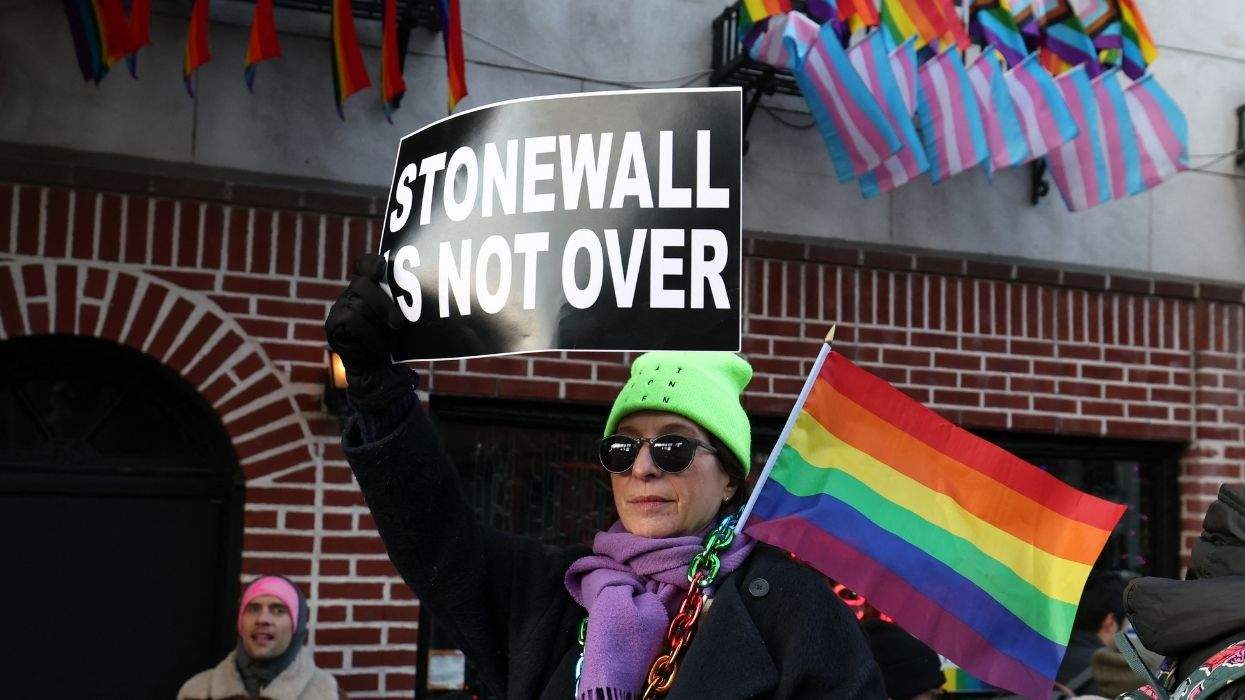The Food and Drug Administration may revise its ban on gay blood donors this week.
The federal agency's Blood-Products Advisory Committee is meeting Tuesday to review a recommendation by the Department of Health and Human Services, reports The Atlantic. In November, HHS's Advisory Committee on Blood Safety and Availability suggested easing the ban, which was instituted in 1983, shortly after the advent of the AIDS epidemic in the United States.
If the FDA were to adopt the HHS proposal, the ban would not be lifted but rather changed to a one-year deferral, meaning gay men would be able to donate blood only after a one-year period of abstinence from sex.
Under its present policy, the FDA website states that men who have sex with men are "deferred" as blood donors, since "MSM are, as a group, at increased risk for HIV, hepatitis B and certain other infections that can be transmitted by transfusion."
Referencing numbers from the Center of Disease Control, the statement notes that while the rate of HIV infection among the general U.S. population remained stable between 2008 to 2010, men who have sex with men have seen a seroconversion spike of 12 percent. The most dramatic rise in HIV infection, 22 percent, occurred in young men in this demographic.
"Since younger individuals are more likely to donate blood, the implications of this increase in incidence need to be further evaluated," the FDA concludes.
A statement from Gay Men's Health Crisis, an LGBT nonprofit set to send representatives to testify at the hearing Tuesday afternoon, says that while the proposed change from HHS is progress from the FDA's current no-exceptions ban, it still falls short in many respects, including its feasibility.
"While the proposed change from a lifetime ban to a 12-month deferral is a step forward, it does not go far enough," GMHC maintained in the recent statement. "Any deferral based on a sexual orientation label -- MSM, gay, or bisexual -- still perpetuates the harmful and unscientific notion that HIV is transmitted because of who you are, rather than what you do. "
GMHC went on to note that a "donation policy that requires 12 months of abstinence is a de facto lifetime ban" and questioned the logic of banning an entire group of people, which includes many monogamous, HIV-negative couples.
"Do you require heterosexuals to be abstinent for one year, regardless of assessing their risk for HIV?" the statement pointed out. "This step forward still bans gay and bisexual men who routinely engage in low-risk behavior -- men who would otherwise be eligible to donate if they happened to be heterosexual. For example, two legally married, HIV-negative, gay men who participate in low-risk behavior are still banned for life under this proposed policy, while a similar straight couple could still be eligible to donate."
"We must stop reacting to HIV like it is the early 1980s, when our country assumed it was a 'gay disease,'" GMHC concluded. "With your help, we can keep our blood supply safe through policy and practice rooted in science, without perpetuating the stigma and discrimination still driving this epidemic."















Charlie Kirk DID say stoning gay people was the 'perfect law' — and these other heinous quotes
These are some of his worst comments about LGBTQ+ people made by Charlie Kirk.